Hila is an Afghan teenager currently living in Poland. While trying to cross a fence on the Polish-Belarusian border to reach family in Germany, she fell and sustained injuries necessitating three months in hospital. The accident has left lasting damage. Her family broke off contact, and Hila now resides in a Polish orphanage. She told InfoMigrants her story.
"I have been here almost eight months I think. I was a long time in the hospital and then I was moved to the orphanage. But today, I feel like I have really arrived in Poland," Hila* says in a phone interview with InfoMigrants.
On the day we talk, Hila is visiting Warsaw with humanitarian workers from Poland's Grupa Granica collective, Marianna and Iza. The collective has been supporting her since her fall.
Marianna explains that movement has been difficult for Hila until recently. Since arriving in Poland, Hila has only seen the walls of the hospital and the Polish orphanage near the border where she has been placed by the Polish authorities, Marianna said.
Conditions in the orphanage are dire, the aid worker said. Hila is not receiving what she needs and has very little support, either psychological or medical, of which she is in urgent need, she added.
'I feel like it is my first day in Poland'
"Before now, I felt like I was still in Belarus. But today, I have seen a lot of towns and beautiful things, and big, big buildings. I feel like it is my first day in Poland," Hila tells InfoMigrants.
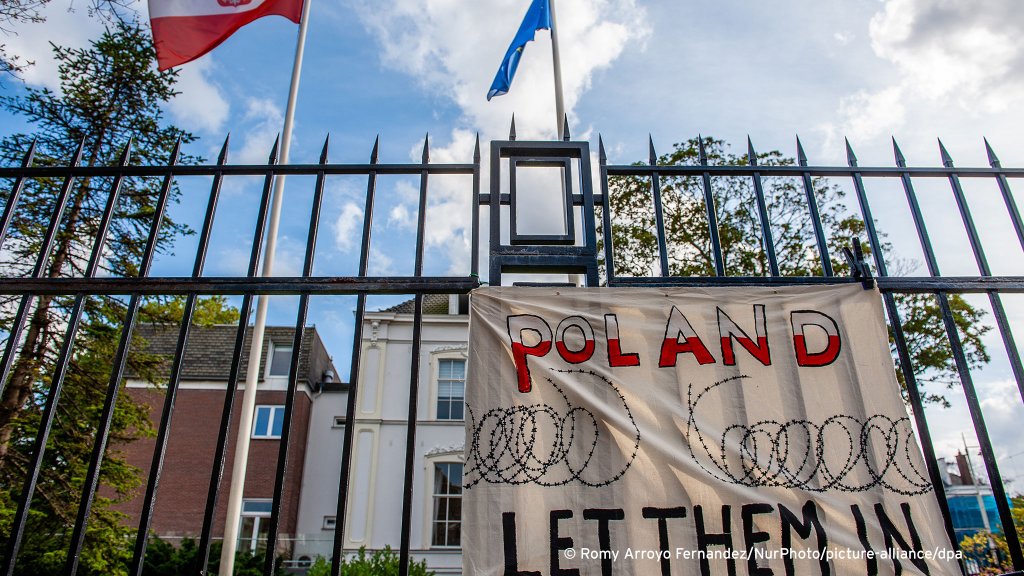
Hila has a soft, girlish voice when she speaks to InfoMigrants via WhatsApp call. She sounds young.
But behind her youth, one can sense a composure and a strength unusual in a teenager. As her story unfolds, the experiences she recalls help to explain her determination to look on the bright side of life.
Also read: Who is eligible for Germany's Afghan reception program
"Hila is so full of positivity, she just shines from inside out," says Marianna, a humanitarian worker who helped set up the Fundacja Bezkres (Boundless Foundation), which means "boundless" or "limitless help, limitless imagination, limitless tolerance, limitless compassion", according to the organization's website.
'I am originally from Bamiyan, but I grew up in Mazar-I-Sharif'
Hila is Hazara, a minority ethnic group in Afghanistan often subject to discrimination, targeted killings and persecution.
"I am originally from Bamiyan, but I grew up in Mazar-I-Sharif. It’s a beautiful city, not too big, such fresh weather and it has a very warm atmosphere," explains Hila. "I never knew my father. He was a policeman, and the Taliban killed him, so I have never seen him."
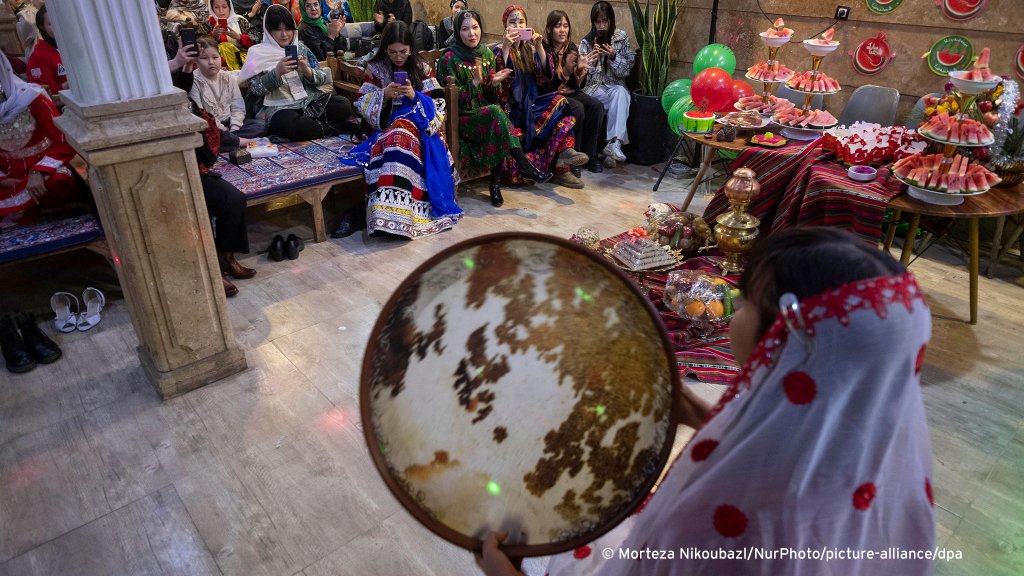
"When I was about one, my mother married someone else. Until I was about 10 or 11, I thought he was my real father, because I didn’t know any better. But when I was around 14, my mum died of cancer. When my mum died, I was left with my younger sister, who is just a year and a half younger than me. We were like siblings. But when the Taliban took over, suddenly our schools closed, our education stopped, and the Taliban declared that anyone who wasn’t already married could be taken for marriage."
'Suddenly there was nothing for us'
Timings are sometimes vague in the story. Months and years become confused along the way, but the feelings and experiences pulse strongly through her tale. Mention of big geopolitical movements are absent, but the effects they have had on Hila’s life and family cut through the closed doors of her home.
"Suddenly there was nothing for us, we couldn’t go to school, nothing. We were just left with our father, but he wasn’t my real father. He was always using chars, you smoke it. [Editor: Hashish or marijuana is known as chars in Afghanistan]. He was on that all the time. My mum was always fighting with him because of that. He didn’t want to work, he didn't bring in any money.
Also read: Afghans at risk, where to seek help
My mum fed him, because my real father was a policeman, so my mother received that money. I have two older sisters, and that money was enough for us three, we would get it paid every year from the government. The home we lived in was owned by my [real] father too, so we could manage because we didn’t have to pay rent. After my mum died, this man wanted to sell our home, but my older sister refused to give him permission. But, when the Taliban came, we were stuck at home, we weren't allowed outside, we couldn't do anything."
'After perhaps an hour or so, all these cars came to the house'
"One day," Hila continues, "my [step]-father told me, 'I have to go somewhere with your sister, you need to stay at home.' I said, 'OK.' Then after perhaps an hour or so, all these cars came to the house. They knocked on the door. I was really afraid. They came in and they said, 'your father says you have to come with us.' I replied 'OK, I am coming.' I got in the car and they had guns. They took me to a big house. There were a lot of cars there. I was so afraid, too afraid to speak. Then they told me 'your father gave you to us, and you have to live with us from now on.'"
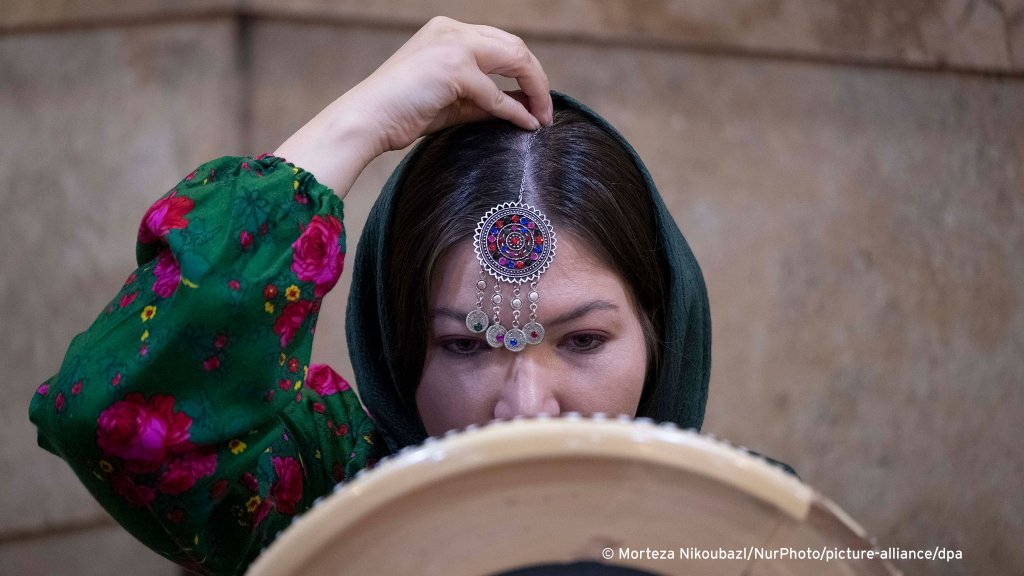
Hila finds it difficult to talk about this period of her life. It is unclear exactly how long it lasted, or what happened while she was there. "But this kind of story is very common in Afghanistan," says Hila sadly.
Nabila Karimi-Alekozai from DW and InfoMigrants Dari confirms that it is not particularly unusual for women to be sold or exchanged in Afghanistan.
Also read: Nadia, I no longer watch the news from Afghanistan, it makes me sad
"This has been going on, sadly, since long before the Taliban took back control," explains Karimi-Alekozai. Having spoken to Hila in Dari, she confirms that the young woman was not married off to the man, but that he acquired her by paying off her stepfather's debts.
Women sold as goods
"Sometimes women are sold by a family that needs money. This is more common with poorer families, but also happens with middle and even upper-class families. Sometimes a woman is sold or exchanged to pay off a debt, be that from drug addiction, or gambling or anything else.
Sometimes, a family might have their eye on a woman in the target family, so they will offer to take care of the debts in exchange for that woman as a wife for one of their sons. At other times, women are used to mend rifts between clans. This is also common in other neighboring societies, like Kurdish society," explains Karimi-Alekozai.
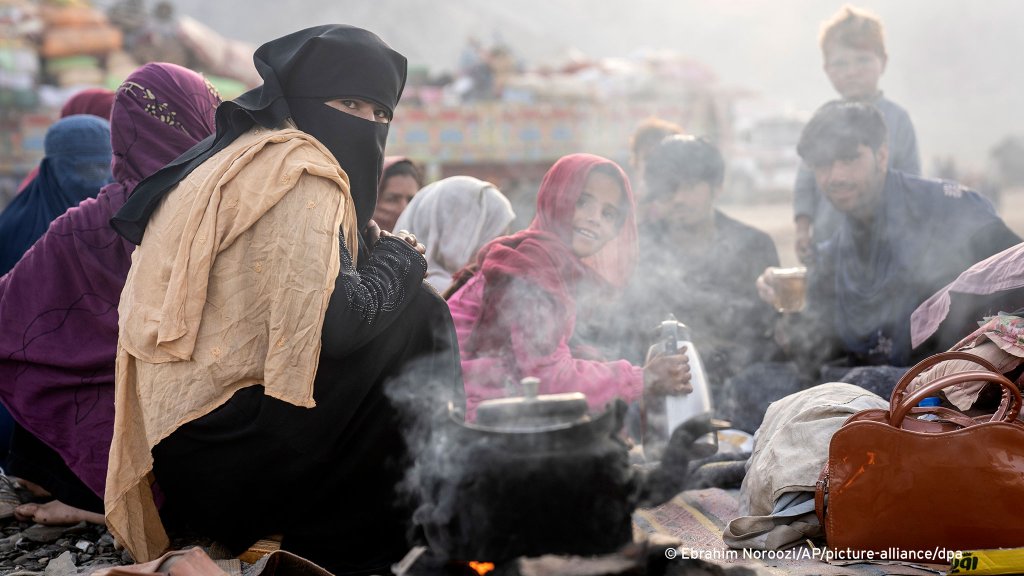
Karimi-Alekozai admits that to European ears, this sounds like sexual slavery. However, she said, in Afghanistan, it is not referred to as such.
"I asked, 'where is my sister? Where is my father?'" Hila says she thinks she was in the home for a month or more. "I can’t find words to talk about this, it is so painful for me," she sighs.
"Sometimes an old woman [the man's mother] would come and ask me if I was alright, and say, 'don’t cry.' Apart from that, there was nothing for me. That time was so bad. But after a while, I realized I had to be a 'good person' for them," says Hila.
'They knew I was a child'
"Then I was a good person for them,” she says, her voice sounding sadder and further away.
"I was on my own in that room at all times. They knew I was a child and so I decided to ask them for a phone, 'so I could play,'" Hila says.
Someone in the house agreed to give her a tablet computer, explains Hila.
Also read: Afghan boy travels 5,000 kilometers alone in search of father
"That tablet had no sim card, so they thought I couldn’t contact anyone, but it was connected to internet in the house," says Hila, her voice becoming stronger. "I had an Instagram account, so I quickly downloaded it when no one was around and got a message to my sister. Then, I would delete the account, so no one would know. Then after, when I was left alone again, I would load up the account again."
"My sister replied and told me to get ready to escape. There were always cars around that house, and she said she would send a car and I should get ready. In the meantime, she told me to be nice with them, to act normal and things would be OK."
'I just took my chance and ran away'
"The car she sent was like a taxi. I could see him always around the house. One day, there was no one around, no security, and I just took my chance and ran away. My sister told me that once I got in the car, it would take me directly to Kabul.
In the car, there were some clothes for me, something to eat, and I took those clothes and we went to Kabul. My sister prepared a passport for me. It wasn’t my real passport, but I needed a passport if I wanted to get out of that country. Also, I needed a different identity because if those people had found me, they would have asked for all the money back they paid to my [step]father."
Also watch: Refugee woman offers online job training to women in Afghanistan
Hila says she wasn’t able to complain about her situation because of the power and attitudes of the Taliban.
"Had I gone to the Taliban, all they would have said was, 'this is your husband,' and my complaints wouldn’t have been heard, you know what the Taliban are like?" sighs Hila.
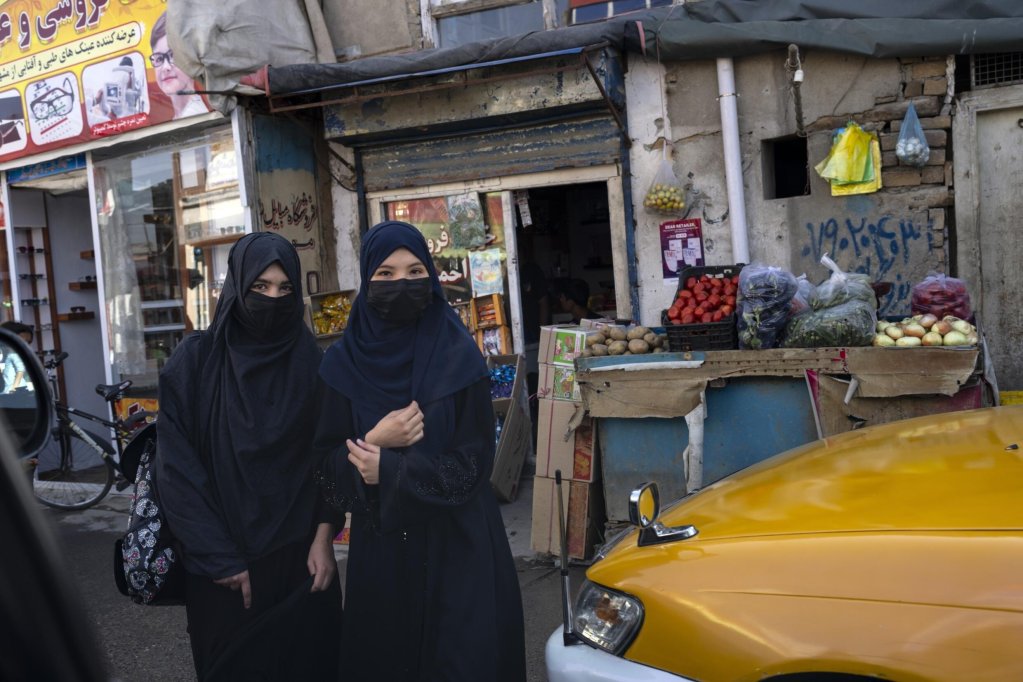
"A man was in Kabul, a friend of my sister, and he helped me get a visa and the passport. At that time, there was just the Russian embassy in Kabul, so I got a visa for Russia. They gave me a student visa."
Hila explains that the people who arranged her trip told her to wear a hijab and tell the officials at the airport that her husband was waiting for her in Dubai, where the plane was scheduled to make a stop.
"They told me, if I had told them I was going directly to Russia, they would have asked a lot of questions," says Hila.
From Russia, to Belarus and finally Poland
Hila says she spent around 11 months staying in a student hall in Russia until her visa was about to run out.
The problem was, she would have to return to Afghanistan to renew the visa.
"I was afraid if I go back, I won’t be able to come back again. So, I rang my sister and said, 'I have to find someone who can help me cross the borders into Germany.' There are so many people from Afghanistan going through Russia to get to Germany," explains Hila.
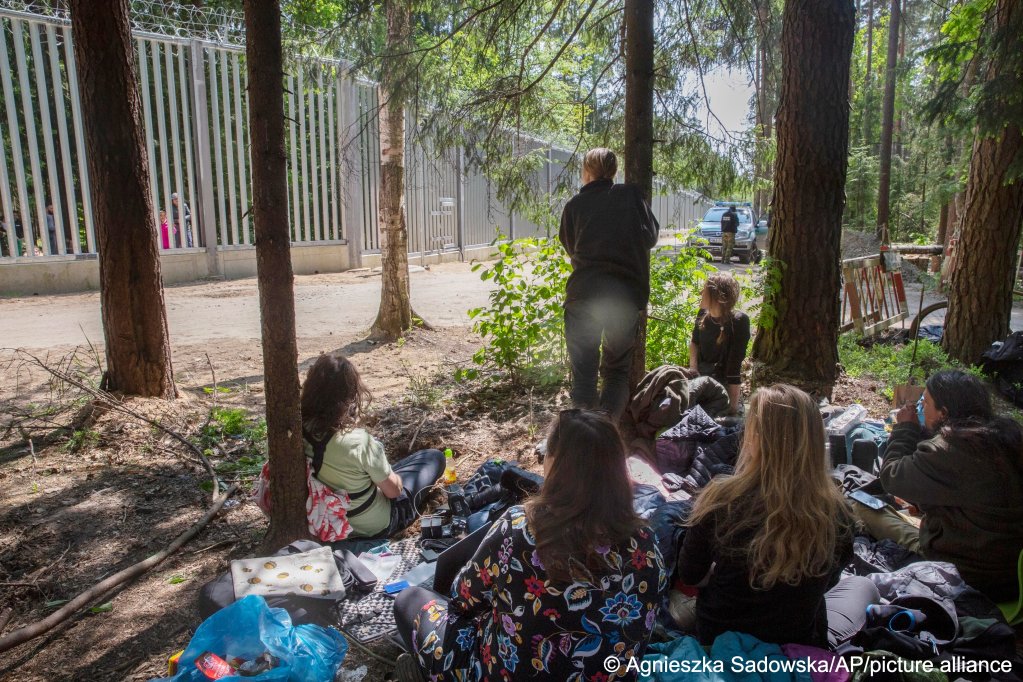
"And then I found a family who were going to make that journey. A father, mother and a child. They said 'you can come with us to Belarus, we have a person taking us there, and then you can decide from there how you go.' So, I went with them in the car."
Hila says she saw "a lot of people making the same journey. I saw pregnant women making this crossing. It was so easy getting to Belarus, and it cost around $113 (about €104). Hila says she spent about a month and a half in Belarus trying to find the cheapest option to continue to Poland and then Germany.
"I didn’t have much money, I needed a cheap way," she said.
'There were a lot of groups there, hundreds of people from every country'
She eventually found someone and joined a group.
"When we got to the Belarus jungle, the Belarus police picked us up and took us to some place near the border with Poland. There were a lot of groups there, hundreds of people from every country. From [countries in] Africa and Afghanistan; old women, old people, one man with just one foot. The police took us in the car, but they mixed us all up, 30 people in one car, 50 in another, and drove us to near the border."
Hila says the Belarusian police gave them implements with which they could dig holes to cross under the border fence. But the group she was with decided this was not helpful and started collecting wood to build a ladder to scale the fence instead.
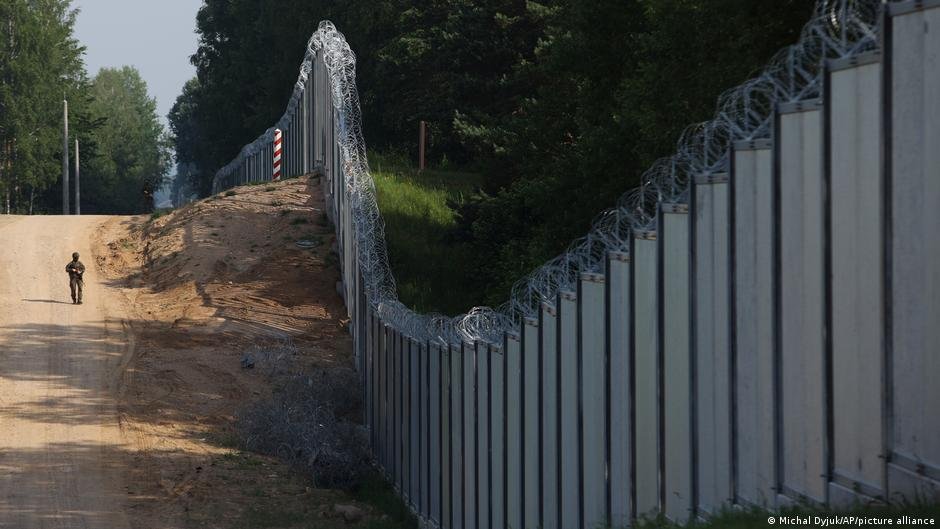
Falling from the ladder
Hila fell from a height of about seven meters while trying to cross the fence using the ladder, says Marianna.
"They used our shoelaces to tie the wood ... and make the height of the fence," Hila says.
She explained that she and her group were in the "jungle" for about 20 days. She says that people in the group were fighting and no one knew which way to go. People kept taking over and declaring themselves leaders, Hila says.
In the end, they ran out of food and had to take water from the streams. Hila was part of a group of about 15 who decided to test out the ladder.
"We got to the border, we couldn’t see anyone, so they said, just climb up, climb down and then just run. I don't know what happened to me, but I fell. When I opened my eyes, I knew I couldn’t walk or move my body. The only thing I could move were my hands."
Hila lost consciousness as a result of the fall.
"When I opened my eyes, I saw three boys from Afghanistan, and they were taking me on their back," she says.
Hila lost all her possessions in the fall. She says her bag was too heavy for the boys to also carry, so they left it behind, as well as her warm coat, her shoes and all of her things.
"I had nothing," says Hila.
'I said to them, you can go, leave me here, maybe I will die'
The boys were worried that if she fell asleep she wouldn’t wake up, so they wouldn’t let her fall asleep, remembers Hila, lighting fires "with perfume" and talking to her the whole time to keep her conscious.
"I said to them, you can go, leave me here, maybe I will die, it is no problem. Just leave me here and maybe someone will find me."
Hila remembers her back hurt so much, she didn’t really care anymore. But the boys refused to leave her.
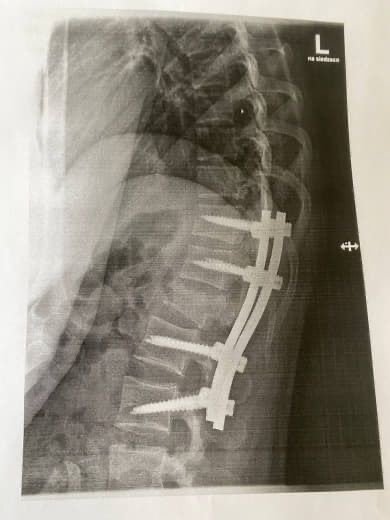
They traveled for one day through the forest, carrying Hila on a makeshift stretcher fashioned out of wood.
"It was so painful for me," says Hila, sighing. Because of the pain, Hila pleaded with the boys to take her back towards the border, in the hope someone would find her. But eventually, they called the number for Grupa Granica, of which the Boundless Foundation is part, and two people from the group arrived.
"They arrived. When they saw me, they realized I couldn’t walk anywhere. They gave us food and they stayed with me until the ambulance arrived," Hila says.
Hila's fall occurred in July 2023. She spent at least two months in hospital, much of it in intensive care.
"Hila has had several operations, and she will need more," says Marianna. "She has a metal plate in her foot."
Hila says they will insert more prosthetics in her back as it has been so badly damaged. She has had to use a catheter to empty her bladder since the fall.
Although she can now walk, feeling has not returned to all parts of her body.
"My foot is OK now, not so painful," Hila says. "I can now walk and that is better. The doctor says that maybe it will take a year and a half until all the feeling comes back."
'You are a miracle for us'
"The doctors say whenever I go to the hospital: 'You are a miracle for us, we thought, looking at your injuries, you would never walk again,'" says Hila. "One bone is damaged so badly in my back that there is really nothing there."
Despite the miraculous recovery, Hila's current injuries have complicated her ability to migrate further to Germany, where her sister, aunt and at least three adult cousins all reside. Her sister says she hasn't been able to deal with the paperwork required to guarantee she can support Hila in Germany, especially with potentially costly ongoing medical care.
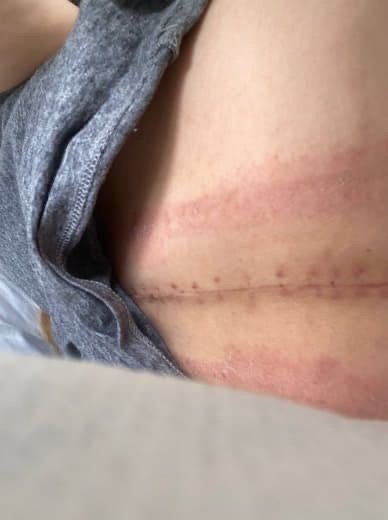
Hila explains that her sister has three young children and is in a home for asylum seekers somewhere in Germany. She is trying to divorce her husband because he was violent towards her, she says, and is unsure how she might be able to support Hila or take on what she sees as another "burden," especially when her own asylum status is not yet clarified.
"My sister is fairly new in Germany, she doesn’t have her own home and she can’t speak German," says Hila. "She has no work, no money and her husband is making trouble, so she doesn’t want me there. She told me, you have to find something suitable on your own."
Fears for her younger half-sister in Afghanistan
Hila is also concerned about the whereabouts of her younger half-sister, who was taken by the stepfather. The family still has no news, although they are looking, says Hila.
Her older sister still in Afghanistan, who works as a surgeon, has been forced to move cities to escape the powerful family who paid her stepfather money for Hila.
"They were always coming to her door and saying, give us money because of your sister," Hila says.
Hila is determined to continue her education in Europe, and hopes to become a doctor like her older sister in Afghanistan, she explains.
"But first I have to finish my education and work hard," sighs Hila.
Hila knows she needs to find her own solutions. She says whenever she feels down, the people at the foundation, like Marianna and Iza, help her feel brave and strong again. Still, she doesn’t see a future for herself in Poland, despite the foundation’s help. "There is nothing for me here, no help, no education, they don’t want me," she says.
Hila is hoping that her aunt who has a German passport and a home can help, "but she also won’t speak to me; in Afghanistan, people are so afraid of what others think, I don’t understand it."
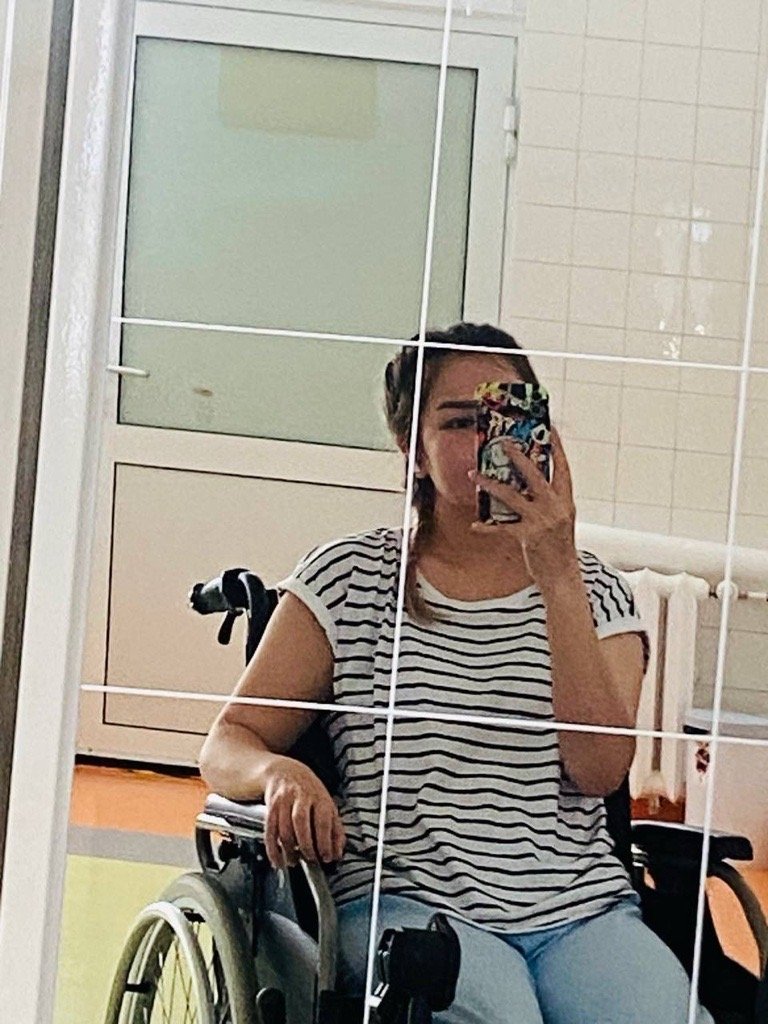
Strength through adversity
Although Hila doesn’t know the identity of the man who bought her in Afghanistan, she concedes he must have been very powerful.
"There were so many cars with black windows and a big house, of course they were powerful. But I don’t know anymore because they didn’t speak to me like a human, they just came in for what they wanted," says Hila quietly.
Hila concedes that her whole family is worried about the money the man says they owe him.
"My sister had to move cities because of it. Of course they are scared because of the papers that my [step]-father signed! But we can’t find him, we are just shocked about what he did. He has broken all contact, because he knows if we find him, we would take back that money."
Hila admits that she cries a lot about all the difficulties she is facing, but then pulls herself together, knowing she needs to be brave.
"If no one wants me," she says, "then I want myself."
*Not her real name. Hila means hope in Afghanistan and was chosen to represent one facet of her character and to protect her identity.
Despite breaks in her education forced by the Taliban, Hila’s English is good. At times, her quotes have been rounded out for ease of understanding. Although we cannot independently verify what Hila told us, InfoMigrants cross-checked her story with our Dari colleagues who spoke with her and clarified anything that was unclear or difficult for Hila to explain in English.
